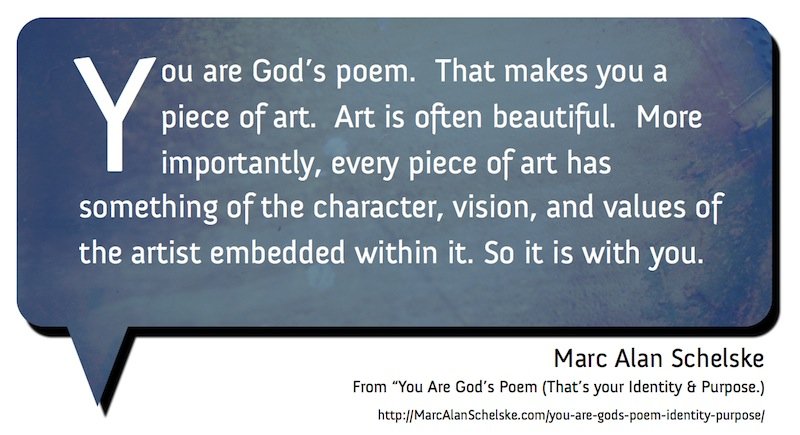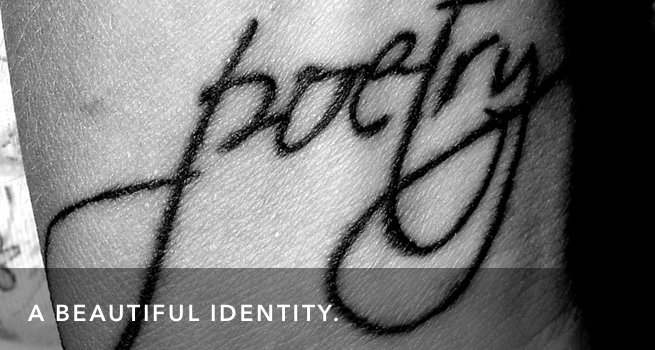My daughter, Emerson, was sitting in her carseat in the back row of the van as we drove home from dinner one evening. She was four at the time. Discipline was not her strong suit that day, and as evening came she got more and more out of control. She was angry with me because I I had corrected her pretty sternly at dinner.
She was scrunched down in her carseat, arms tightly crossed quietly fuming at me. Then I heard her tiny voice, speaking with great energy. “I don’t like you, daddy.” Then she went quiet. Even though she was four, it still stung a bit. It was a little slap at my identity and purpose as her father. A moment later she spoke again, almost like she was rethinking her position.
“Well… I like your beard… I just don’t like you.”
That was so much better! My beard is magnificent. And since my beard hadn’t been a part of disciplining her, I can understand where she was coming from.
Watching my daughter work out her emotions toward me was fun, but her words stuck a chord. I thought about how many relationships I’ve had in my life with people who truly didn’t like me for me. They liked something about me: my performance, my loyalty, how I could support and encourage them. But their love didn’t extend to all of who I am.
I also realized that for a long time that’s how I saw God. There were certain things about me that God loved–my good behavior, my worship, my dedication. But there were just so many thing that didn’t line up with God’s wishes; God couldn’t really love all of me!
Identity: Unlovable
This perspective skewed my sense of identity. If God couldn’t love all of me as I am, then something about me was fundamentally flawed. I’m not talking about sin. I’m talking about the very core of my identity. Without enormous change and effort, I was unlovable.
I never thought this consciously; but as I have reviewed my life, it’s clear that I was living this way. This deeply held belief led to a heavy and painful sense of purpose. Somehow–whether for God, or the people around me–I had to work in order to earn my place at the table. My performance was my golden ticket. If I could do a good enough job, enough of the time, I’d be included, loved, valued.
So here I was: Identity: Unlovable. Purpose: To perform well enough to be loved. Does that resonate with you? Have you ever felt your life reduced to these terms?
A new way of seeing
I still wrestle with performance-based value, but I’ve come to see God’s love in a different way and it’s radically shifted my sense of identity and purpose. One simple passage of scripture opened up the door to a whole new understanding of myself, and it’s driven a major shift in my life.
Here it is: Ephesians 2:10.
For we are God’s workmanship, created in Christ Jesus to do good works, which God prepared in advance for us to do.
This verse speaks directly to identity and purpose, two of the things we are most hungry for, and that are so important to me.
Your Identity: God’s Poem
That first line changed the way I see my identity. “For we are God’s workmanship.” That word workmanship means that you are handcrafted by God. You’re not the result of a factory process cranking out a crowd of identical products. You’re not the result of a random process that has no meaning.
But there’s something even better hidden beneath the word that made the passage light up for me. The English word workmanship is translated from the Greek word, poiema. This is the root of our modern word poem. Think about that for a moment. You are God’s poem. That makes you a piece of art.
Art is often beautiful. More importantly, every pieces of art has something of the character, vision, and values of the artist embedded within it. So it is with you. The Bible says you were made in God’s image, that you reflect His glory. The trajectory of your life is to mature in the image of Christ. All of that is what it means to be a work of art handmade by God.

Your Purpose: To Do Good and Beautiful Things
If you understand that you are God’s poem, it shapes the way you see your purpose. Why is art made? To be beautiful. To compel. To express the vision of the artist. This is all true for you and me, but we’re not art made to sit on a mantle or a glass case, protected from life. We were made to do something.
The verses says we were made “… to do good works, which God prepared in advance for us to do.” God made you to express God’s own heart and vision in the world in an active way, to bring good and beautiful things to life. You–exactly as you are–are a part of God’s plan to bless and serve the world.
Understanding this began a journey of emotional and spiritual recovery. It is the first building block to living a wholehearted life. My next post will dig into that, and explain more of what I mean by the call to “live wholehearted.”
How does the idea of being God’s poem sit with you? How might owning this truth shape your life? What kind of art are you, anyway?

Such a great post; your daughter’s beard comment is hysterical!
I know…I laughed out loud when she said it. Thanks for reading and leaving a comment!
Great message. Thank you. Can’t wait to read more of your blog. Enjoying my first week of “Not Just One More Thing” 10-week course. Blessings.
Oh, thanks so much. Let me know how it goes for you, ok?
Hi Marc,
For many years now, I’ve taken Ephesians 2:10 to mean exactly what you’ve described in your blog–especially as it relates to the word, “workmanship.” However, lately I’ve been reading another perspective related to that word. For instance, I’m curious about your thoughts related to this article: Are We God’s Poem (Eph 2:10)? | billmounce.com
Thanks!
Hey Wade, Bill is a thoughtful student of the Biblical languages. His concern is a good one. We want to be careful to not import meaning back into the text that was never there. That can happen when we assume that modern nuances of words and word roots are the same as how the original readers would have heard the words. That is a healthy safeguard for wise exegesis.
In this case, I think Bill is being a bit too strict. While poiema may not have carried the meaning we associate today with poetry, it very clearly did mean something that was handcrafted. We might use the word artisanal today. This word did not refer to things “made” in a generic sense, but to things created with design and intention. It’s appearance in other ancient literature bears this out.
That is why I think the nuance of poetry is appropriate to the text. A poem is a made thing, where each word has been carefully considered. When we return to the Genesis creation story, particularly the Genesis 2 telling, we see God making humanity with this kind of intentional design and hands-on care. Another reference is Psalms 139. Here we’re told that God knitted us together and knows our inward parts. This is a picture of intimate knowledge—precisely the kind of knowledge a skilled artisan would have of the object they made.
In my view, Ephesians 2:10 is a jumping off point into deeper perspective about God’s role in making humanity. That perspective is far broader than a single word in Ephesians. My own study suggests it’s safe to say that the witness of scripture is that this “making” was done with care, thought, love, skill and intentional design.
I love this – I struggle with rejection because it’s so painful so this morning I wrote
these words to Jesus. You never fail when trust you Lord, when it feels like I don’t matter I trust you Lord. You pulled me out of my mother’s womb. I was glad to read – your identity: God’s poem. Thanks
Thanks for sharing! I’m glad these words can encourage you.